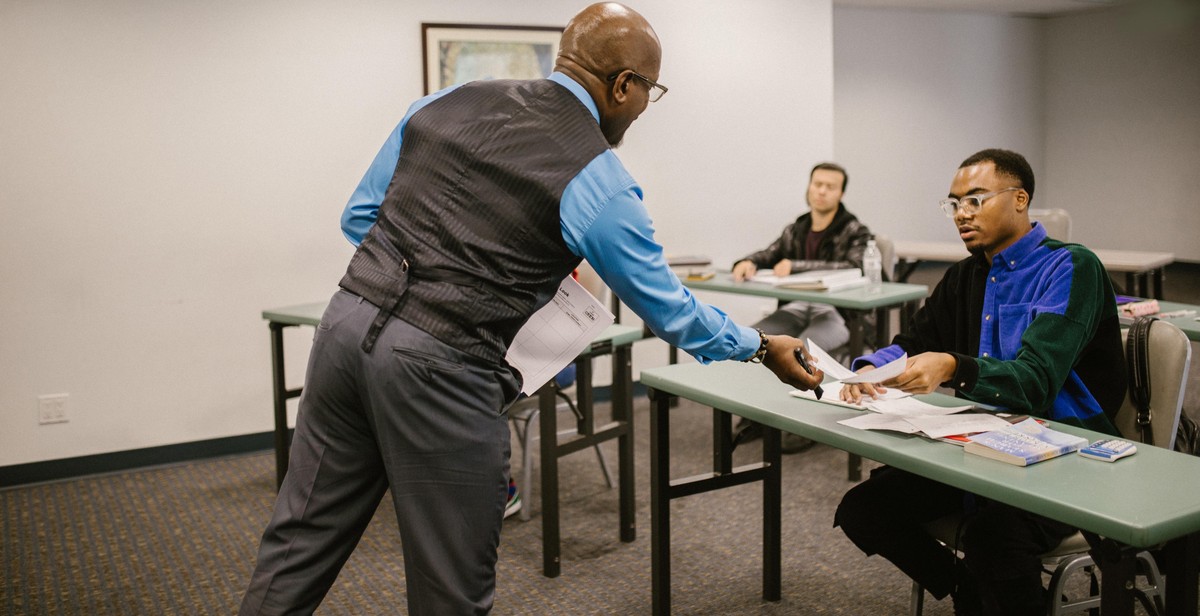How to Overcome Language Learning Plateaus: Strategies for Breaking Through Learning Slumps
Language learning is a journey that requires patience, dedication, and perseverance. It is not uncommon to experience plateaus or learning slumps while trying to master a new language. These plateaus can be frustrating and demotivating, but they are a natural part of the learning process.
If you are struggling to break through a language learning plateau, don’t worry. There are many strategies you can use to overcome this obstacle and continue making progress in your language learning journey.
Identify the Cause of Your Plateau
The first step in overcoming a language learning plateau is to identify the cause of it. There could be many reasons why you are not making progress, such as a lack of motivation, ineffective study habits, or a difficult learning environment. Once you identify the cause of your plateau, you can take steps to address it.
Revamp Your Study Habits
If you are not making progress in your language learning, it could be because your study habits are not effective. Try revamping your study habits by incorporating new techniques such as flashcards, language exchange programs, or immersion programs. Experiment with different methods until you find what works best for you.
Set Realistic Goals
Setting realistic goals is essential for language learning success. If you are not making progress, it could be because your goals are too lofty or unrealistic. Set achievable goals that are specific, measurable, and time-bound. This will help you stay motivated and track your progress.
Conclusion
Learning a new language is a challenging but rewarding experience. Don’t let plateaus or learning slumps discourage you. By identifying the cause of your plateau, revamping your study habits, and setting realistic goals, you can break through the slump and continue making progress in your language learning journey.

Understanding Language Learning Plateaus
Learning a new language is exciting and challenging, but it can also be frustrating when progress seems to come to a halt. This is often referred to as a language learning plateau, which is a period of time when a learner’s progress seems to level off or even decline.
What is a Language Learning Plateau?
A language learning plateau can be defined as a period of time when a learner’s progress seems to level off or even decline. This can happen at any stage of the language learning process and is often characterized by a feeling of frustration and lack of progress. Plateaus can last for days, weeks, or even months, and can be caused by a variety of factors.
Why Do People Experience Language Learning Plateaus?
There are several reasons why people experience language learning plateaus:
- Lack of motivation: When learners lose motivation, they may stop putting in the necessary effort to improve their language skills.
- Insufficient practice: Language learning requires consistent practice, and if learners don’t practice regularly, they may not progress as quickly as they would like.
- Overwhelming content: Sometimes learners may feel overwhelmed by the amount of new vocabulary and grammar they need to learn, which can lead to a feeling of stagnation.
- Difficulty with a specific language skill: Learners may find that they struggle with a specific language skill, such as speaking or listening, which can impede their progress in other areas.
Understanding why a language learning plateau is happening can help learners address the issue and find ways to overcome it. By identifying the cause of the plateau, learners can adjust their study habits and strategies to get back on track and continue making progress in their language learning journey.

Identifying Your Language Learning Plateau
If you have been learning a new language for a while, you may have experienced a plateau in your progress. A plateau is a period of time when you feel like you are not making any progress despite your efforts. It can be frustrating and demotivating, but it is a common experience for language learners.
Signs of a Language Learning Plateau
Here are some signs that you may have hit a language learning plateau:
- You feel like you are not making any progress
- You are struggling to remember vocabulary or grammar rules that you previously learned
- You are not able to understand native speakers as well as you would like
- You are not able to express yourself as fluently as you would like
- You are losing motivation to continue learning
If you are experiencing any of these signs, it is likely that you have hit a plateau in your language learning.
Assessing Your Language Skills
Before you can overcome a language learning plateau, you need to assess your current language skills. This will help you identify your strengths and weaknesses and develop a plan to improve.
You can assess your language skills in several ways:
- Take a language proficiency test to determine your level
- Record yourself speaking and listen back to identify areas for improvement
- Ask a native speaker to assess your skills and provide feedback
- Track your progress over time to see where you have improved and where you still need work
By assessing your language skills, you can identify areas where you need to focus your efforts to break through your learning slump.

Strategies for Breaking Through Language Learning Plateaus
Learning a new language can be challenging, and it’s common to hit a plateau where you feel like you’re not making progress. However, there are several strategies you can use to break through these learning slumps and continue to make progress in your language learning journey.
1. Change Up Your Learning Routine
If you feel like you’re stuck in a rut with your language learning, it may be time to switch up your learning routine. Try incorporating new study materials, such as podcasts or videos, or change the time of day that you study. This can help to keep your learning fresh and engaging, and prevent you from getting bored or burnt out.
2. Focus on Specific Language Skills
If you’re struggling with a particular aspect of the language, such as grammar or pronunciation, try focusing your efforts on improving that specific skill. This can help you to break through a plateau and make progress in other areas of your language learning as well.
3. Seek Out Native Speakers
One of the best ways to improve your language skills is to practice speaking with native speakers. Look for language exchange programs or online communities where you can connect with native speakers and practice your conversation skills. This can also help to improve your listening comprehension and overall understanding of the language.
4. Immerse Yourself in the Language
Another effective strategy for breaking through language learning plateaus is to immerse yourself in the language as much as possible. This can include watching movies or TV shows in the target language, listening to music or podcasts, or even traveling to a country where the language is spoken. The more you expose yourself to the language, the more progress you’ll make in your language learning.
5. Take a Break
Sometimes, the best thing you can do to break through a language learning plateau is to take a break. Give yourself some time to recharge and come back to your studies with a fresh perspective. This can help you to overcome any mental blocks or frustrations you may be experiencing, and make it easier to continue making progress in your language learning.

Staying Motivated Through Language Learning Plateaus
Language learning can be a challenging journey, and it’s not uncommon for learners to experience plateaus, where progress seems to stall. However, with the right strategies and mindset, it’s possible to overcome these slumps and keep moving forward towards your goals. Here are some tips to help you stay motivated through language learning plateaus:
Setting Realistic Goals
One of the main reasons for plateaus is setting unrealistic goals. It’s important to set achievable goals that are specific, measurable, and realistic. For instance, instead of setting a goal to become fluent in a language in six months, you can set smaller goals such as learning 10 new words a day or practicing listening skills for 30 minutes a day. This way, you can track your progress and celebrate small wins along the way, which can boost your motivation to keep going.
Tracking Your Progress
Tracking your progress is essential to staying motivated. It helps you identify areas where you’re making progress and areas where you need to improve. You can use a language learning app or a journal to track your progress. By seeing how far you’ve come, you’ll be motivated to keep going and push through the plateaus.
Rewarding Yourself
Rewarding yourself for your achievements is a great way to stay motivated. Set up a reward system for yourself for reaching certain goals. For example, if you learn 100 new words, treat yourself to a movie or a favorite meal. This not only makes the learning process more enjoyable but also gives you something to look forward to and keeps you motivated to reach your next goal.
In conclusion, language learning plateaus are a normal part of the learning process, but they don’t have to derail your progress. By setting realistic goals, tracking your progress, and rewarding yourself, you can stay motivated and break through the slumps.

Conclusion
Language learning plateaus can be frustrating and demotivating, but they are a natural part of the learning process. It’s important to remember that progress is not always linear, and that taking a break or changing your approach can often be the key to overcoming a learning slump.
In this article, we’ve explored a variety of strategies for breaking through language learning plateaus, including:
- Changing your study routine
- Focusing on specific areas of weakness
- Engaging with authentic materials
- Seeking out new learning opportunities
- Connecting with other language learners
By incorporating these strategies into your language learning journey, you can overcome plateaus and continue making progress towards fluency. Remember to stay patient and persistent, and to celebrate small victories along the way.
Learning a new language is a challenging but rewarding experience, and with the right mindset and approach, you can achieve your language learning goals. Don’t give up – keep pushing yourself and you’ll be speaking your target language with confidence before you know it.
